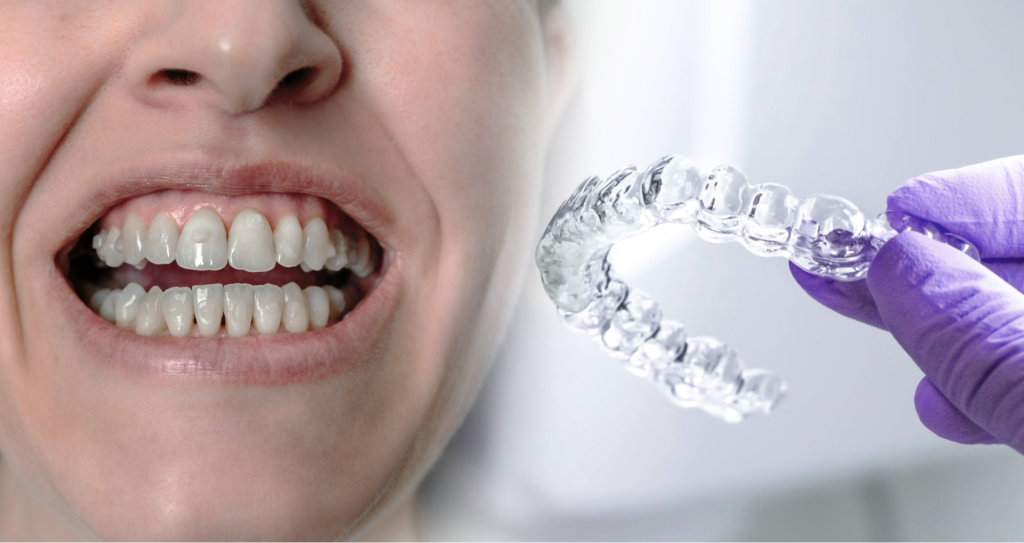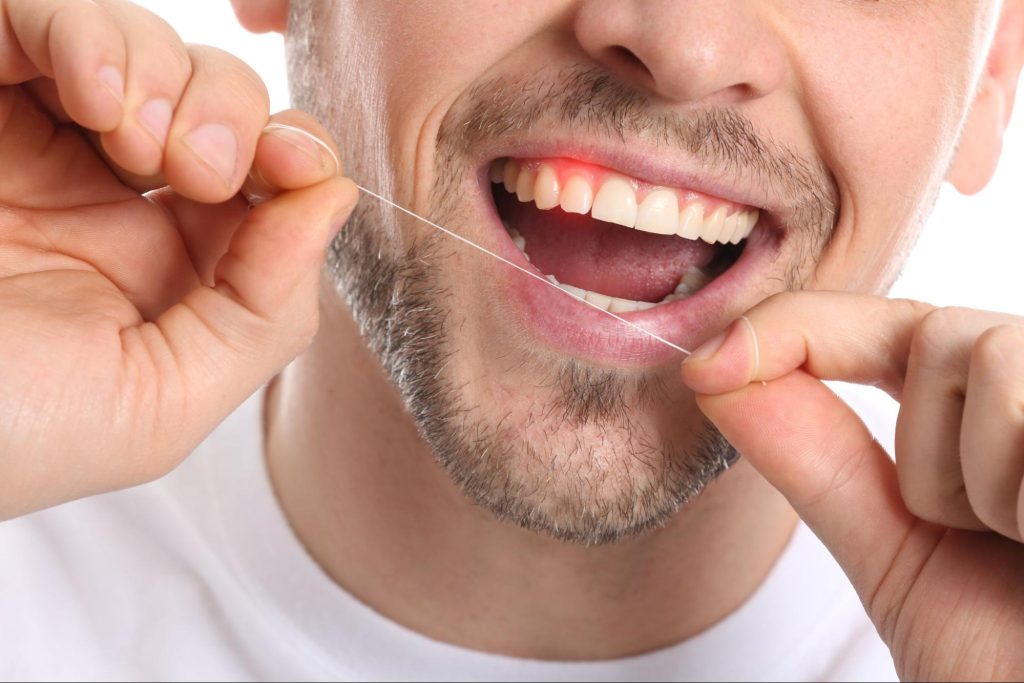Teeth are susceptible to routine wear and tear, decay or damage from injuries or dental trauma. Restorative dental procedures such as dental crowns help protect and restore weakened or damaged teeth. They aid by providing an alternative treatment option to negate the need for invasive procedures such as dental extraction.
If you’re considering getting a dental crown and need guidance to help you make an informed decision, we’ve got you covered. Read on to understand more about the types of dental crowns, their characteristics, and benefits to help you get started.
Types of Dental Crowns
A dental crown is a tooth-shaped helmet that covers weakened, broken or damaged teeth. It’s a common dental procedure to restore appearance and functionality and protect the existing tooth. A dental crown is usually needed:
- To protect the existing tooth after a root canal
- For a fractured or broken tooth
- To fill the gap left by a missing tooth
- After a dental implant or for an implant-supported bridge
Some of the different types of dental crowns include:
Porcelain Crowns
Porcelain is a highly durable dental material with a lifespan of ten years or more. It mimics the appearance of natural teeth and is one of the most popular crown materials because of its strength, look and colour.
Porcelain-Fused-to-Metal (PFM) Crowns
PFM crowns combine durability and aesthetics with a metal substructure and an outer layer of porcelain. They offer the strength of metal and the natural appearance of porcelain and can be used for both front and back teeth. PFM crowns are commonly used for both front and back teeth as they provide the optimal balance of durability and aesthetics.
All-Ceramic Crowns
All-ceramic crowns are made entirely of ceramic or dental porcelain, offering excellent aesthetics that closely resemble natural teeth. They are a popular choice for front and back teeth, providing a suitable option for individuals with metal allergies.
Zirconia Crowns
Zirconia crowns are made from a strong, white-coloured ceramic material called zirconia oxide. They provide exceptional strength and durability, making them ideal for posterior teeth.
Gold Crowns
One of the strongest, most durable types of crowns, gold crowns are made of a gold alloy which is extremely resistant to fracture and wear and tear. The only downside of gold crowns is their prominent gold colour, making them more suitable for back teeth.
Stainless Steel Crowns
Commonly used for children with primary teeth, stainless steel crowns are premade crowns which cover decayed teeth to prevent the spread of dental caries. They usually fall out when the baby tooth comes out, leaving way for healthy, decay-free teeth.
Composite Resin Crowns
Composite resin crowns are made of a tooth-coloured dental composite material. While they are less durable compared to other types of crowns, they are economical and can be used as a temporary solution or for covering primary teeth.
At Mosman Fine Dental, we offer porcelain fused with metal or porcelain crowns because of their appearance, longevity, and strength. The crown is custom-made to match your tooth colour and provide a precise fit with digital impressions.
Benefits of Dental Crowns
Some of the benefits of dental crowns include:
- Protect weakened or damaged teeth, preventing further damage to the underlying tooth structure.
- Help restore appearance by covering the teeth with a natural-looking cap that matches your tooth colour.
- Restore functionality, improving chewing and biting ability by filling the gap with a tooth cap.
- Are highly durable and lasting, depending on the material used, proving a long-term solution for dental restoration with proper aftercare and maintenance.
- Can be customised to match your tooth shape, colour and size for a seamless, comfortable fit and aesthetic look.
- Provide an alternative to invasive treatments such as dental extraction by preserving the remaining teeth and encasing them in a protective barrier.
- Have a relatively quick procedure which can be completed in fewer appointments.
Dental Crown Procedure
The dental crown procedure can generally be completed in two appointments. The first appointment involves numbing the tooth and surrounding area to remove the decay from the damaged tooth and reinforce the foundation for maximum strength. If you have any old filling material, it is also removed, and the tooth is prepared for your dental crown. To get a flawless fit, we take digital impressions to fabricate the permanent crown. You will be given a temporary crown to protect the treated tooth until the new crown is ready.
You’ll need to come in for your next appointment once your new crown has been made. The crown is inserted, and the fitting and bite are verified for comfort. Any adjustments needed are made by our dentists before cementing the crown permanently into place.
A dental crown has an average lifespan of 7 to 12 years with proper care. A consistent oral hygiene routine with daily brushing, flossing and regular dental checkups go a long way in extending longevity and maintaining your oral health. If you are looking for a restorative option to fill the gap left by missing teeth, we also offer dental bridges to restore your smile and prevent the shifting of teeth.
Factors to Consider When Choosing a Dental Crown
Gone are the days when only metal crowns and fillings were available for damaged teeth. With more aesthetic options that are equally durable, such as porcelain, dental crowns look and feel like your natural teeth, helping preserve and strengthen the tooth structure for improved function.
If you’re considering getting a dental crown and are confused about which one to get, here are a few factors you should consider to make an informed decision:
Tooth Location
The location of the teeth plays a pivotal role in determining the type of dental crown you need. The back molars used for chewing require a strong crown which is able to withstand biting forces. They are also less prominent than the front teeth, where aesthetics are prioritised. As such, porcelain fused to metal or a gold crown may be a good option for back molars.
Crown Material Options
There are many materials to choose from when getting a dental crown. Durability, strength, and aesthetics should be the discerning factors when choosing a crown material. At Mosman Fine Dental, we recommend porcelain crowns because of their natural look and strength. They can be fused with metal for extra strength.
Aesthetics
Most people prefer crowns that blend in with their existing teeth. Materials like all ceramic or porcelain crowns closely mimic the tooth colour and texture for a more natural look.
Allergies or Sensitivities
Some people may have allergies or sensitivities to certain materials used in dental crowns, such as metal alloys. Discuss your allergies with the dentist to ensure the crown material that you select is safe for you.
Longevity
Different crown materials have varying levels of durability and longevity. Factors like biting forces, oral hygiene habits, and clenching or grinding habits (bruxism) can affect the crown’s lifespan. Your dentist can guide you in choosing a crown material that aligns with your lifestyle and oral health habits.
Cost and Insurance Coverage
Dental crowns can vary in cost depending on the material and complexity of the case. It’s important to discuss the cost of the crown and whether it is covered by dental insurance.
Dental Crowns: A Restorative Solution for Weak or Damaged Teeth
Preventive and restorative dentistry form the foundation for lasting oral health and a great looking smile. At Mosman Fine Dental, we offer a comprehensive range of dental treatments tailored to your immediate and future dental needs, minimising the need for extensive procedures with preventive and restorative treatment options for your worn down or weak teeth. Book a consultation to learn more about dental crowns today.



